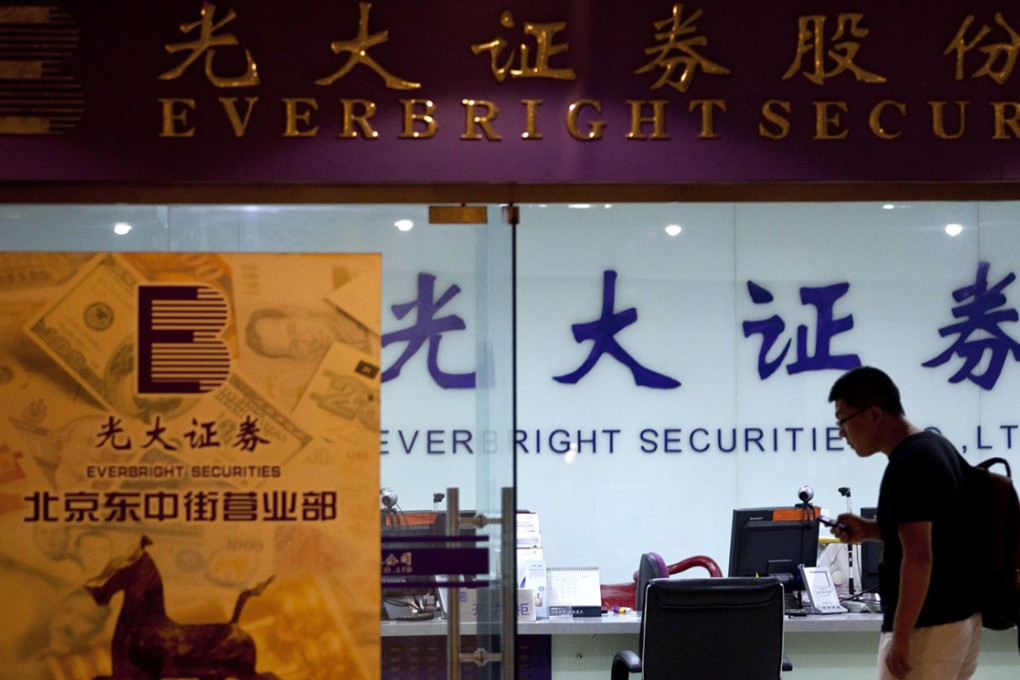Lawsuit against China Everbright Securities may tarnish through train stock scheme
A class-action lawsuit stemming from a chaotic trading error by China Everbright Securities in August last year has put the CSRC on the dock just two months before the Shanghai-Hong Kong stock trading scheme launches in October.

A class-action lawsuit stemming from a chaotic trading error by China Everbright Securities in August last year has put the China Securities Regulatory Commission on the dock just two months before the Shanghai-Hong Kong stock trading scheme launches in October.

It propelled Shanghai's share market by 5 per cent before the brokerage pared its orders, causing the rally to go bust in the span of a single trading session.
Scores of investors were left holding the proverbial bag when the index tumbled.
The CSRC fined Everbright a record 523 million yuan and banned four company executives for life from the securities industry, after deeming the trading transaction by Everbright on that day as insider trading.
The regulator encouraged small investors to use the legal system to sue and get compensation for their losses.